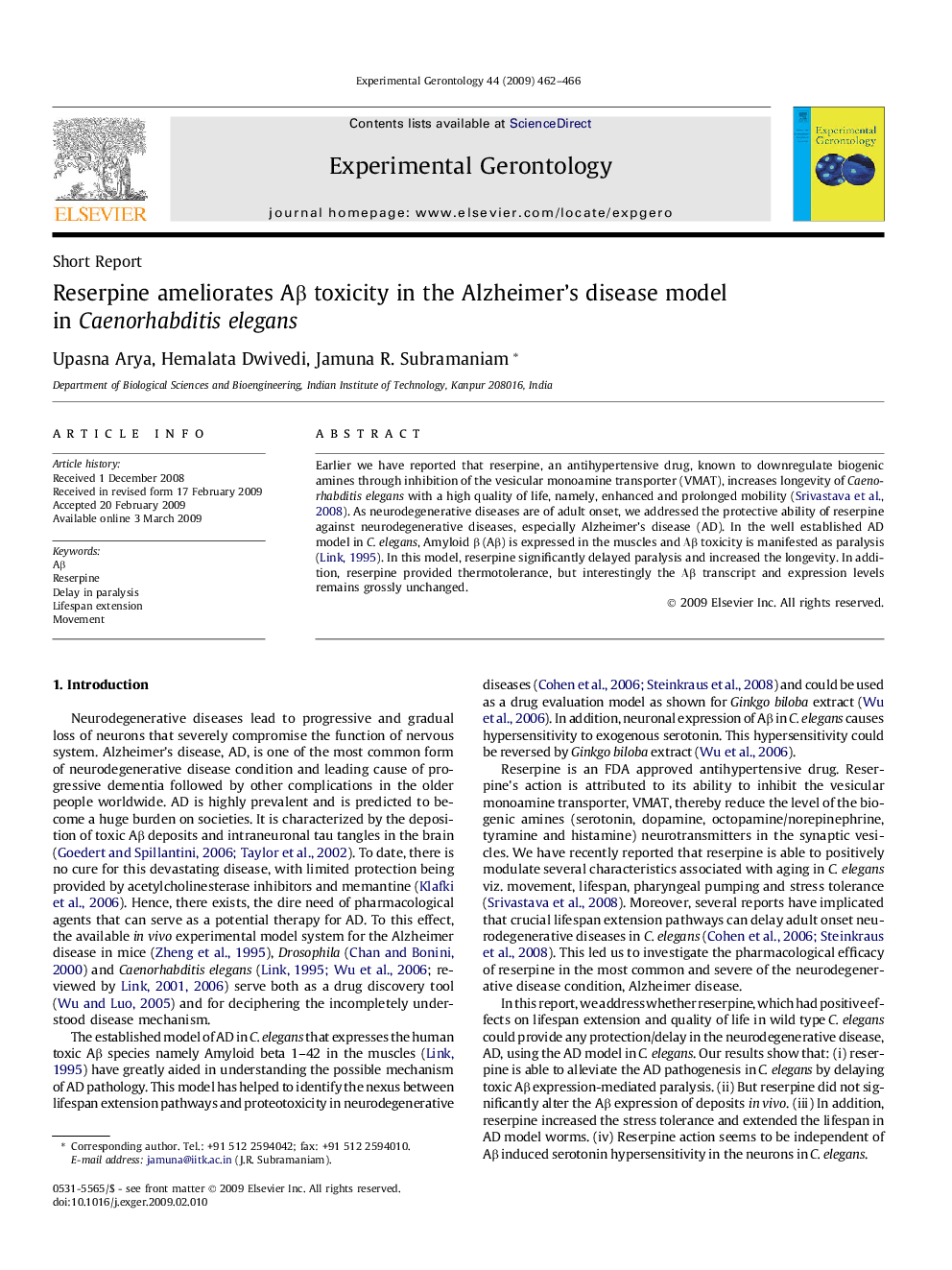| Article ID | Journal | Published Year | Pages | File Type |
|---|---|---|---|---|
| 1906922 | Experimental Gerontology | 2009 | 5 Pages |
Earlier we have reported that reserpine, an antihypertensive drug, known to downregulate biogenic amines through inhibition of the vesicular monoamine transporter (VMAT), increases longevity of Caenorhabditis elegans with a high quality of life, namely, enhanced and prolonged mobility ( Srivastava et al., 2008). As neurodegenerative diseases are of adult onset, we addressed the protective ability of reserpine against neurodegenerative diseases, especially Alzheimer’s disease (AD). In the well established AD model in C. elegans, Amyloid β (Aβ) is expressed in the muscles and Αβ toxicity is manifested as paralysis ( Link, 1995). In this model, reserpine significantly delayed paralysis and increased the longevity. In addition, reserpine provided thermotolerance, but interestingly the Αβ transcript and expression levels remains grossly unchanged.
